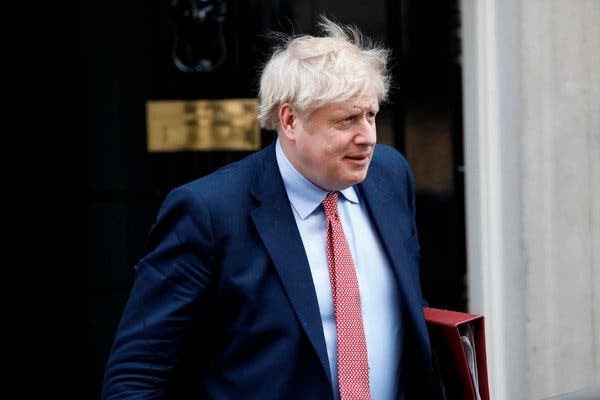Coronavirus Creates Uncertainty in UK Government

Courtesy of The New York Times
By Jeremy Perillo
Amidst the coronavirus pandemic, uncertainty has caused most aspects of normal life to go awry. From socializing with friends to going to work, and even dining in at a restaurant, global citizens are living in a strange and unknown world.
Even in the most uncertain of times, governments and their leaders offer hope, stability, and reassurance, especially when most people are confined to their homes for weeks on end. The current situation in the United Kingdom has not allowed for that to happen.
British Prime Minister Boris Johnson tested positive for the coronavirus in late March, showing just how undiscriminating this virus is. Earlier this week, Johnson was admitted into a hospital for testing, and was then moved into the intensive care unit later that evening to stay for an indefinite amount of time.
This has caused some uncertainty with Britain as they worry the head of their government cannot perform his job while sick with COVID-19, especially as Johnson does not have a deputy prime minister to immediately replace him if his condition significantly worsens. Possibly to ease the concerns about government continuity, Johnson has deputized Foreign Secretary and First Secretary of State Dominic Raab. This gives him the responsibility to handle administrative tasks like chairing cabinet meetings on Britain’s coronavirus response.
While Johnson is the first world leader to be tested positive for COVID-19, it is certainly startling to his country. At a time of uncertainty and fright, looking upon a singular, strong leader is imperative to maintain a nation’s morale, especially in such peculiar circumstances. Some in the country think that at some point, it should be necessary for the prime minister to furlough his role.
“I think in the end if he’s not well, he will have to reflect on this because the job’s tough at the best of times and it’s doubly tough now,” said the former head of the civil service Lord Kerslake. The lack of organizational clarity stems from the absence of government continuity provisions in the British Constitution.
Shortly after Johnson was admitted into the hospital, the Queen addressed the nation in her fifth televised address throughout her 68-year reign. Her address served as a reminder that the UK “will succeed” and thanked people for their efforts in following the government’s directions.
As of April 7, Johnson remains in ICU and his symptoms have improved since being admitted.








